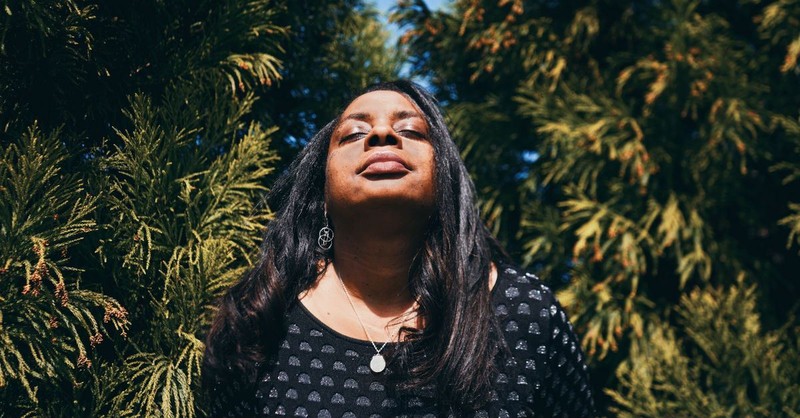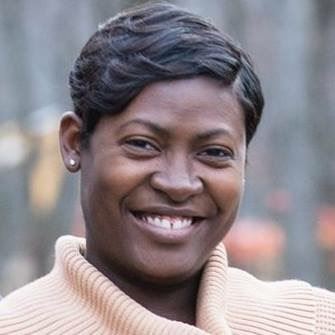
I don’t remember how old I was when I realized my mother was ill. It seems like all I can remember is that she was always that way. There were the “good” years of course – the years where she could mask her illness with symptom-reducing medications, but those always came with side effects. Some were good, some were not so good.
I often wonder what my life would be like had my mother not suffered from a terminal illness. And I always wonder what her life would’ve been like.
There were countless hours I wept, wondering just why God allowed this particular trial to occur and why it was such a fiery one at that. But in my mother’s short 44 years, she had gained something special and it sustained her through lonely days and even lonelier nights.
Photo Credit: Thinkstock/Imabase

"God was the center of her life."
God was the center of her life. He had called her to this and she was doggedly determined not to let Him down. My mother lived her live to the fullest. She never complained about her illness. And she was ever-conscious about not becoming a burden to her family. She faced her struggle with tenacity; her constant faith and abiding hope was a testimony to many.
Here are seven things I learned from my mother about faith and hope, even in the face of terminal illness.
Photo Credit: Unsplash/Priscilla du Preez

1. Faith in God is stronger than fear.
Faith in God does not equal the absence of fear, but it helps us to face our fears in spite of how we feel. God encourages us to put fear aside because we are His.
“Now this is what the LORD says--the one who created you, Jacob, and the one who formed you, Israel--"Do not fear, for I have redeemed you; I have called you by your name; you are mine.” Isaiah 43:1 CSB
Photo Credit: Unsplash/Ben White

2. We don’t have to know the end of the story to walk in faith.
Jeremiah 29:11 says, “For I know the plans I have for you – this is the Lord’s declaration – plans for your well-being, not for disaster, to give you a future and a hope.”
God says we have a future, and no matter what it looks like, we can have hope that He is there. As uncertain as the future may seem for someone dealing with long-term illness, our certainty is that God holds our future and that He is not limited by time.
Photo Credit: Thinkstock/AntGor

3. Hope isn’t dependent on a diagnosis.
We can have hope beyond what we believe are the limits of long-term illness. God isn’t confined to man-made timelines. He will accomplish His will in our lives even when all we can see are boundaries.
Psalm 138:8a (NASB) reminds us of this. “The Lord will accomplish what concerns me…” Our days belong to God; He alone determines and knows the length of our days.
“Your eyes saw me when I was formless; all my days were written in Your book and planned before a single one of them began.” Psalm 139:16, HCSB
Photo Credit: Unsplash

4. God is near in our brokenness.
God is near in our brokenness, and our relationship with Him grows wide and deep as we gain our strength from depending on Him. He does not despise our suffering.
“The righteous cry out, and the LORD hears; He delivers them from all their troubles. The LORD is near to the brokenhearted; He saves the contrite in spirit.” Psalm 34:17, 18, BSB
Our suffering brings us close to Jesus; He is moved with compassion on our behalf. He is familiar with suffering. Isaiah 53:3a (HCSB) tells us that “He was despised and rejected by men, a man of suffering who knew what sickness was.”
I believe that when we are at our lowest, walking through out darkest hours, the heart of the Father is closer than we realize.
Photo Credit: Unsplash

5. Our tests aren’t just for us.
Our tests aren’t just for us, but for those around us that may come to know God through watching our journey. How we walk through our trials is so important. Just ask Job.
He had no idea how long he would be in his situation, nor was he aware that he was a cosmic representation of what it truly means to face long-term illness with faith and hope. Not only did his friends get to witness Job’s faithfulness, but we also, thousands of years later, can reap the spiritual reward of his steadfastness.
I often think of the many people who tell me how much my mother’s life inspired them. The fruit of our faithfulness never ceases to bloom in the lives of those whom God aims to reach through us.
Photo Credit: Thinkstock/Rawpixel

6. No part of our stories are wasted with God.
Although suffering and illness were not God’s original design for our lives, He wastes not one part of our story and is always working to restore us to Him - to bring us back to our pre-fall statures and status. Whether or not that physical restoration happens here on earth, or in the earth made new, it gives us a promise to which to look forward – a hope that is not denied by our present circumstances.
"With a twinkle of an eye, our mortal bodies will be changes to heavenly ones and illness, sickness, and suffering will be no more. The threat and sting of death will no longer rule over our bodies; we will live eternally" (Revelation 21:4, CSB).
Photo Credit: Thinkstock/camaralenta

7. We can trust the heart of God.
My mother succumbed to her long-term illness over 16 years ago, but the lessons I learned from walking the journey with her have been lasting and will remain etched in my mind and heart forever.
Whenever my heart seeks to understand the mind of God (which I cannot), I remind myself to trust the heart of God, which reminds me that I don’t have to see the entire staircase before taking the next step. Sometimes the next right thing is just to engage in faith and hope in His promises, like this one:
“I will lead the blind by a way they did not know; I will guide them on paths they have not known I will turn darkness to light in front of them and rough places into level ground. This is what I will do for them, and I will not abandon them.” Isaiah 42:16, CSB
 Quantrilla Ard (affectionately known as Quanny), hails from the DC metropolitan area. She and her husband raise their family with joy and are constantly in awe of each blessing bestowed upon them. Because she leads a full life as a wife, stay-at-home mom, doctoral student, and entrepreneur, Quanny often finds herself in the thick of problem solving at any given moment. Check out more of her writing on her blog, ThePHDMamma.com, and connect with her on Twitter.
Quantrilla Ard (affectionately known as Quanny), hails from the DC metropolitan area. She and her husband raise their family with joy and are constantly in awe of each blessing bestowed upon them. Because she leads a full life as a wife, stay-at-home mom, doctoral student, and entrepreneur, Quanny often finds herself in the thick of problem solving at any given moment. Check out more of her writing on her blog, ThePHDMamma.com, and connect with her on Twitter.
Photo Credit: Thinkstock/PaulMaguire
Originally published Tuesday, 27 November 2018.



